Are you wondering about colostrum and its importance for your newborn? This "liquid gold" is your baby's perfect first food, packed with essential nutrients and antibodies. Colostrum, the first milk produced before and after delivery, offers incredible benefits including immune protection, digestive support, and gut health. While you may worry about milk supply in those early days, remember that colostrum is concentrated nutrition designed specifically for your baby's needs. Understanding colostrum benefits and proper breastfeeding techniques will help you feel confident about providing this amazing first immunization. Let's explore why colostrum truly comes first in your baby's feeding journey.
What Makes Colostrum So Special?
Colostrum is the "first milk" that your body produces in the weeks before delivery and in the early days of breastfeeding. It's been patiently waiting for your baby to arrive! This remarkable first food is perfectly designed with:
- Low fat content for easy digestion
- High carbohydrates and protein for essential nutrition
- Concentrated antibodies for immune protection
- Easy digestibility for your newborn's delicate system
While the amount of colostrum may seem small, remember that a little goes a long way. This concentrated nutrition is exactly what your baby needs.
Step-by-Step Guide to Colostrum Success
Step 1: Start Early and Often
Put your baby to breast frequently in those first few days. These frequent "sips" of colostrum will help bring in your mature milk sooner while giving your baby all the benefits of this liquid gold.
Step 2: Protect Your Baby's First Meals
Make sure your baby's first several feedings are colostrum. This "first immunization" provides the crucial protection your little one needs right from the start.
Step 3: If Supplementation is Needed
If medical concerns require supplementation, try expressing your own colostrum first. You can:
- Express colostrum by hand
- Use a breast pump
- Feed the expressed milk by spoon or syringe
- Ask your lactation consultant for guidance
Always ensure your baby's gut is first protected by colostrum before introducing other fluids.
The Amazing Benefits for Your Baby
Natural Digestive Support
Colostrum has a gentle laxative effect that helps your baby pass meconium (their first bowel movements) and helps prevent jaundice. It's nature's way of getting your baby's digestive system started right.
Immune System Protection
Often called "white blood," colostrum provides large amounts of living cells (lymphocytes and macrophages) that defend your baby against infections and illnesses. It contains high quantities of secretory immunoglobulin A (sIgA), making it your baby's first immunization.
Gut Protection
Your newborn's intestines are naturally very permeable. Colostrum acts like a protective paint, sealing microscopic holes and creating a barrier that prevents foreign proteins from penetrating the gut and potentially causing allergies.
Continued Protection
As your milk transitions from colostrum to mature milk, the concentration of immune factors decreases, but the volume greatly increases. This means your baby continues receiving consistent infection-fighting protection throughout breastfeeding.
Remember: You've Got This!
Those first few days of feeding can feel overwhelming, but trust that your body knows exactly what it's doing. Colostrum is the perfect first food - concentrated, protective, and precisely what your baby needs. Every small amount is providing incredible benefits for your little one's health and development.
If you have concerns or need support, don't hesitate to reach out to your lactation consultant or healthcare provider. They're there to help you and your baby succeed on this beautiful breastfeeding journey.







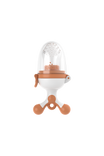


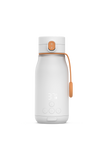
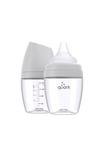
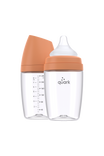
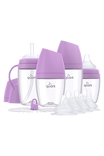
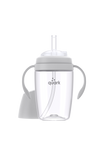

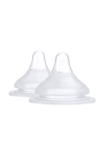
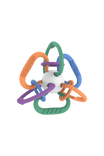




Leave a comment
All comments are moderated before being published.
This site is protected by hCaptcha and the hCaptcha Privacy Policy and Terms of Service apply.